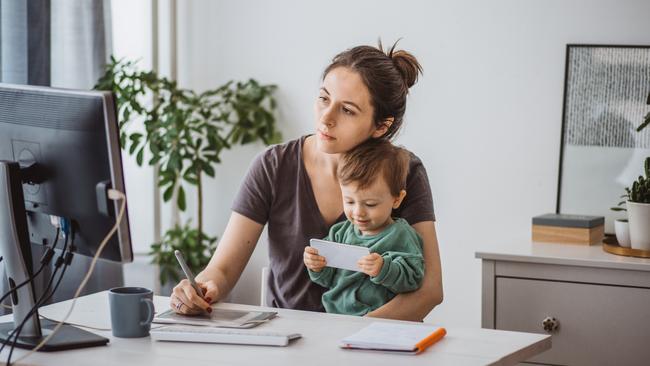
The World Health Organisation reports depression is the leading cause of disability worldwide and the Covid-19 pandemic triggered a 25 per cent increase in anxiety and depression. Many women I know started to spin out. One could not suppress her urge to apply hand sanitiser to guests at regular intervals. Another began to preach Armageddon from her armchair. There was the neighbour who regularly regaled me with tales of who she had spotted walking the street without a mask. A relative thought quarantine facilities were a government experiment with gulags. An old acquaintance tweeted images of people in the park who came too close to her, or violated some other social distancing rule. And we all saw the supermarket brawls between women over toilet paper.
Research indicates the strange behaviour could be related to anxiety. Women experienced heightened levels during the pandemic. There are two main schools of thought about why. One is that women were exposed to more stressors, including caring for children at home. The other is that there is a biological basis for women’s heightened response to stress. Recent research suggests there could be a relationship between birthsex, hormones and stress responses.
In 2009, the US National Bureau of Economic Research published a working paper on the gender gap in subjective wellbeing. In “The Paradox of Declining Female Happiness”, economists Betsey Stevenson and Justin Wolfers found that despite women’s lives having improved on many objective measures since the 1970s, they did not feel happier. The apparent decline in female happiness held across datasets.
More than a decade on, the NBER has released a new paper, “The Female Happiness Paradox”. Professors David Blanchflower and Alex Bryson found variation across countries in self-reported female happiness. Yet when answering questions about negative effect, women are reportedly unhappier than men. Women are consistently more anxious than men. They are also more likely to report feeling depressed, sad, stressed and suffering restless sleep. Men report higher wellbeing in the domain of “momentary positive effect”, defined as “enjoyment, feeling fresh and rested, active and vigorous, cheerful and in good spirits”.
In social theory and philosophy, there are different types of happiness. Aristotle sought to sift through common definitions of happiness and deduce its true meaning. In Nichomachean Ethics, he wrote: “Some identify happiness with virtue, some with practical wisdom, others with a kind of philosophic wisdom … accompanied by pleasure or not without pleasure; while others include also external prosperity.” He came to distinguish the feelings of happiness and pleasure from another form called eudaimonia, consisting of the kinds of contemplation we might associate with high culture today, namely philosophical or scientific thought that leads to greater wisdom and understanding.
Perspective is vital to dispersing depression. By global standards, we have plenty of reasons to be happy. Australia has four of the top 10 most liveable cities in the world, according to The Economist. We’re 11th of 149 countries in the World Happiness Report. While the pandemic has left a sizeable debt burden, we remain a high performer on major economic measures. In the 2022 Index of Economic Freedom, compiled by The Heritage Foundation, Australia is 12th of 177 countries. The index covers 12 measures of economic freedom under four categories: rule of law, open markets, regulatory efficiency and government size, which includes government spending, tax burden and fiscal health. The authors note Australia has a strong legal system to protect property rights and mitigate corruption, as well as robust free-trade agreements and financial freedom. Most criticism by the free-market think tank is reserved for temporary Covid-related government spending and business restrictions.
Despite some bad press, Australia has emerged from Covid with jobs, savings and comparatively low loss of life. Our national unemployment rate of 4 per cent is the equal lowest in 48 years. During the pandemic the sudden loss of jobs was associated with significant decline in wellbeing. In the World Happiness Report, John F. Helliwell et al found unemployment in the pandemic was associated with a 12 per cent decline in life satisfaction. Fortunately, Australian women are working like never before with a 62.4 per cent workforce participation rate – the highest on record.
Happiness is not the alpha and omega of existence, but it does make life easier and nations more productive. The fact women report feeling less happy and more anxious than men could be due to many reasons, but negative thinking can create a downward spiral that leads to depression. We live in a happy country and the time for women to realise their potential has never been better.



It is a lucrative industry without a tangible product; one of the world’s most sought after and fleeting chemical highs. Happiness and the quest for it have driven humanity to distraction for millennia. Recent research shows women are less happy than men and experienced greater anxiety during the Covid pandemic. Yet women and girls are often encouraged to focus on the negative aspects of being female rather than empowered to overcome obstacles by taking action. And there is a parade of political shock jocks tapping the rich vein of female anxiety about climate change and gender ahead of the federal election.